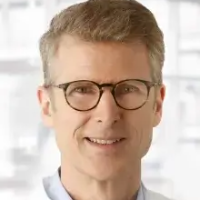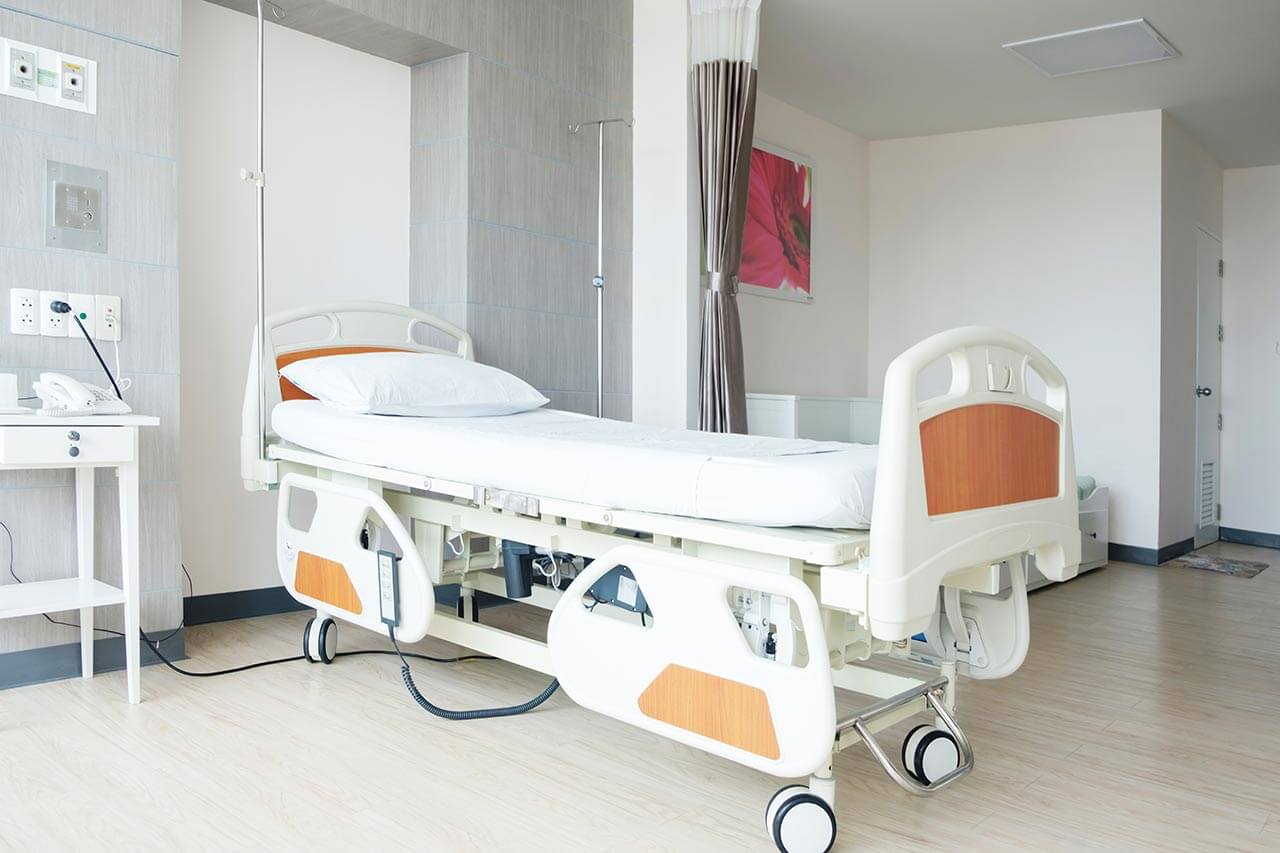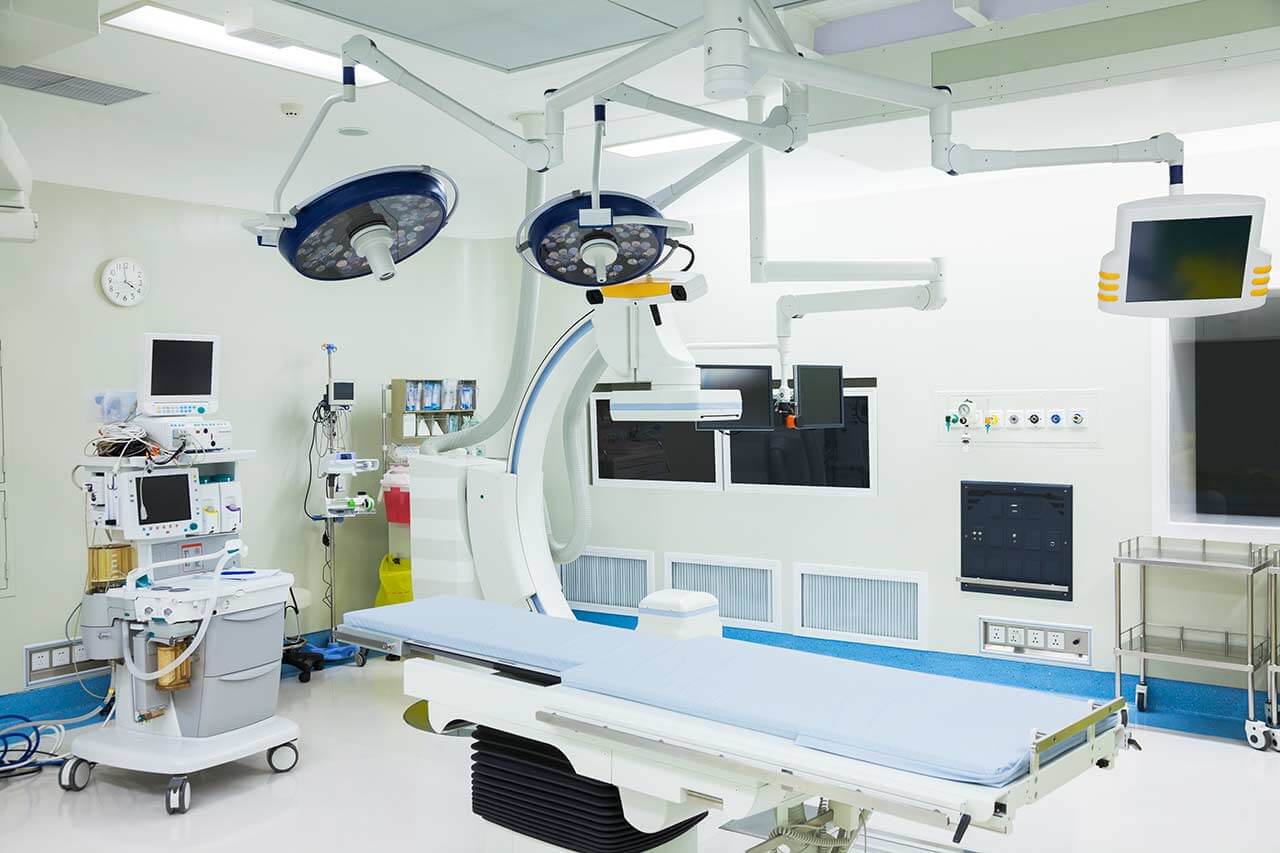
The program includes:
- Initial presentation in the clinic
- clinical history taking
- physical examination
- cardiological examination
- laboratory tests:
- complete blood count
- general urine analysis
- biochemical analysis of blood
- TSH-basal, fT3, fT4
- indicators of inflammation
- indicators blood coagulation
- Cardiological examination
- Measurement of arterial blood pressure, EKG
- Cardiac monitoring (24h)
- ECHO
- Transesophageal echocardiography (TEE)
- nursing services
- full hospital accommodation
- explanation of individual treatment plan
Required documents
- Medical records
- Echocardiography (if available)
Service
You may also book:
 BookingHealth Price from:
BookingHealth Price from:
About the department
The Department of Pediatric Cardiology and Congenital Heart Defect Treatment at the German Heart Center Munich offers the full range of diagnostic services and effective conservative treatments for general heart pathologies and congenital heart defects in children of all age groups. The department also provides medical care for adult patients with congenital heart defects (EMAH certification from the German Cardiac Society). The scope of tasks assigned to the department's specialists includes catheter-based interventional procedures. They perform about 800 diagnostic and 300 therapeutic interventions annually. With over 40 years of successful clinical experience, the department holds a leading position in the area of its specialization not only in Germany but also in Europe. The cardiologists at the medical facility provide top-class medical care to young patients while surrounding them with care and showing a friendly attitude. The department provides play areas, and clown shows are held weekly, thanks to which children feel as comfortable as possible and do not experience any fears about the upcoming treatment. The department is headed by Prof. Dr. med. Peter Ewert.
An important place in the department's clinical practice is given to comprehensive examinations to assess the structural features and function of the cardiovascular system in children. The most common tests in young patients include electrocardiography, echocardiography, and heart X-rays. These three tests are very informative, and, in many cases, they are sufficient to detect congenital heart defects in children. The department also offers contrast-enhanced cardiac catheter-based diagnostic procedures, which are performed in a specially equipped laboratory under local anesthesia. If a child is suspected of having a congenital heart disease, an imaging test is often required, so the department's doctors also perform a heart MRI, which uses strong magnetic fields and radio waves rather than X-rays. The department annually performs more than 800 heart MRI procedures for congenital malformations.
The department diagnoses and treats about 8,000 patients every year. Up to 6,000 of them undergo procedures on an outpatient basis, and up to 2,000 require a hospital stay. The department's specialists often conduct effective drug therapy for heart pathologies. However, more drastic measures are required in many cases, namely interventional catheter-based procedures, which are performed in collaboration with pediatric cardiac surgeons. The department's specialists are highly competent in the field of therapeutic catheter-based interventions, for example, balloon dilatation for heart valve stenosis (aortic valve or pulmonary valve), balloon dilatation and/or stent implantation for blood vessel stenosis (pulmonary arteries or aorta), atrial and ventricular septal defect closure, patent ductus arteriosus occlusion, etc.
The department operates a high-tech Cardiac Intensive Care Unit, in which patients stay after surgery. This intensive care unit has 16 fully equipped beds and is the largest Cardiac Intensive Care Unit for children in Germany.
The department's doctors do their best to make young patients feel as comfortable as possible and give them the opportunity to escape from the treatment, which is sometimes quite lengthy and complicated. The department has special playrooms and rooms for mothers with children. Children and their parents are provided with all kinds of psychological support, which has a positive impact on the dynamics of recovery for young patients.
An integral part of the department's clinical practice is counseling and medical care for adults with congenital heart disease. Even after effective treatment in childhood, people with congenital heart defects need to carefully monitor their health and regularly undergo preventive heart check-ups. Cardiologists prescribe non-invasive tests to such patients, including electrophysiological ones. Whenever required, doctors from other specialties are involved, for example, pulmonologists, nephrologists, orthopedists, geneticists, and others.
The department's main clinical activities are as follows:
- Diagnostics
- Echocardiography
- 2D echocardiography
- M-mode echocardiography
- Doppler ultrasonography
- Fetal echocardiography (with 3D reconstruction)
- Transthoracic echocardiography
- Transesophageal echocardiography
- Electrocardiography
- Heart X-ray scans
- Diagnostic cardiac catheterization
- Electrophysiological studies
- Electrocardiography (including continuous and stress), spiroergometry and event recorder examination
- Mapping of primary and secondary atrial arrhythmias using the CARTO system
- Functional heart diagnostics in children and adults with congenital heart defects
- Electrocardiography
- Blood pressure measurement
- Blood oxygen saturation assessment
- Pulmonary function tests
- Oxygen uptake measurement
- CO2 test
- Echocardiography
- Doppler ultrasonography of blood flow in the blood vessels
- Laboratory tests
- Heart MRI
- Echocardiography
- Treatment
- Drug therapy
- Therapeutic cardiac catheterization procedures
- Aortic and pulmonary artery balloon dilatation
- Angioplasty and stenting for pulmonary artery and descending aortic stenosis
- Atrial and ventricular septal defect closure
- Collateral, coronary fistulas, and patent ductus arteriosus closure
- Percutaneous pulmonary valve replacement (Melody Klappe)
- Ablation for atrial and ventricular tachycardia in children with healthy hearts and children with complex heart defects, for example, after Fontan procedure, after atrial remodeling due to transposition of the great vessels
- Implantation of modern pacemakers and defibrillators (single-chamber, dual-chamber, and biventricular) in cooperation with the Department of Pediatric Cardiac Surgery
- Extracorporeal membrane oxygenation for heart and lung failure
- Other diagnostic and therapeutic services
Curriculum vitae
Higher Education
- 1983 - 1984 Medical studies at the Albert Ludwig University of Freiburg.
- 1984 - 1989 Medical studies at the Georg-August University of Goettingen.
Practice
- 1986 Department of Pediatrics, Hospital Granollers, Barcelona, Spain.
- 1987 Department of Pediatrics, Hospital at the University of Cadiz, Spain.
- 1988 - 1989 Departments of Internal Medicine and Surgery, Pediatrics at the City Hospital Oldenburg.
- 03.05.1990 Department of Surgery, Hospital at the University of Alicante, within the Erasmus Program.
Clinical and Scientific Activities
- 1990 - 1993 Assistant Physician, Department of Pediatrics at the University Hospital Luebeck.
- 1994 - 2000 Assistant Physician in the Department of Pediatric Cardiology and Congenital Heart Defect Treatment at the German Heart Center Berlin.
- Since 2000 Senior Physician in the Department of Pediatric Cardiology and Congenital Heart Defect Treatment at the German Heart Center Berlin.
- Since 2002 Managing Senior Physician in the Cardiac Catheterization Laboratory of the Department of Pediatric Cardiology and Congenital Heart Defect Treatment at the German Heart Center Berlin.
- Since 2008 Deputy Head of the Department of Pediatric Cardiology and Congenital Heart Defect Treatment at the German Heart Center Berlin.
- Since 2012 Head of the Department of Pediatric Cardiology and Congenital Heart Defect Treatment at the German Heart Center Munich.
Diplomas and Certificates
- 1986 Pre-admission to medical practice.
- 1992 Admission to medical practice.
- 1992 American State Examinations (TOEFL and ECFMG).
- 1992 Doctoral Degree. Subject: "Echocardiographic volume measurement of the right and left ventricle in healthy children and children with atrial septal defect".
- 1996 Board certification in Pediatrics.
- 1996 Board certification in Pediatric Cardiology.
- 2001 Advanced training in Special Pediatric Resuscitation.
- 2003 Doctoral thesis defense. Subject: "Interventional closure of atrial defects: special indications and new therapeutic strategies".
- 2009 Additional qualification "Adults with congenital heart defects".
Clinical Focuses
- Pediatric cardiology.
- Transcatheter operations for congenital heart diseases.
- Special pediatric resuscitation.
Photo of the doctor: (c) Deutsches Herzzentrum München
About hospital
The German Heart Center Munich is a specialized medical facility for treating cardiovascular diseases in patients of all ages that combines long traditions, unique experience, and the highest level of competence among doctors. The center began its work in 1972 and, during that time, became the etalon Heart Center at the international level. In addition, the center became the first specialized cardiological medical facility in Europe.
The center's highly professional team of doctors effectively treats heart pathologies, including coronary artery and heart valve diseases, heart defects in adults and children, heart rhythm disturbances, and other cardiovascular pathologies. The specialists carry out conservative treatment, perform low-traumatic interventional procedures, minimally invasive surgeries, and the most complex open interventions. The center has state-of-the-art diagnostic equipment to comprehensively examine the heart and develop an optimal treatment regimen.
The integration of all related fields required for making an accurate diagnosis and providing comprehensive and effective therapy for cardiovascular pathologies within a single center is the fundamental principle of successful clinical activities. The center is subordinate to the Bavarian State Ministry of Sciences, Research and the Arts. In addition, the medical facility operates on the basis of the Hospital of Munich Technical University, which provides access to the very latest advances in cardiology and cardiac surgery.
The center's medical team believes that its primary purpose is the provision of optimal cardiological and cardiac surgical care to children, adolescents, and adults in accordance with advanced medical knowledge, as well as the introduction into clinical practice of their own innovative developments and achievements of their partners.
Photo: (с) depositphotos
Accommodation in hospital
Patients rooms
The patients of the German Heart Center Munich live in single and double patient rooms with a modern design. Each patient room has an ensuite bathroom with a shower and a toilet. The standard room furnishings include a comfortable and automatically adjustable bed, a bedside table, a wardrobe for storing clothes, a TV, and a radio. The phone is not available in all patient rooms, but the center has a telephone set that can be used at any time. The center also offers free access to Wi-Fi. The pediatric departments have patient rooms designed for the accommodation of young patients with one of their parents, as well as modern playrooms.
Meals and Menus
The patients undergoing their treatment in the center are offered three tasty and varied meals a day: breakfast, lunch, and dinner. If, for some reason, you do not eat all the food, you will be offered an individual menu.
The center also houses a cafeteria where one can have a snack or enjoy hot and cold drinks. The range also includes newspapers, magazines, and items for everyday needs.
Further details
Standard rooms include:
Accompanying person
Your accompanying person may stay with you in your patient room or at the hotel of your choice during the inpatient program.
Hotel
You may stay at the hotel of your choice during the outpatient program. Our managers will support you for selecting the best option.




